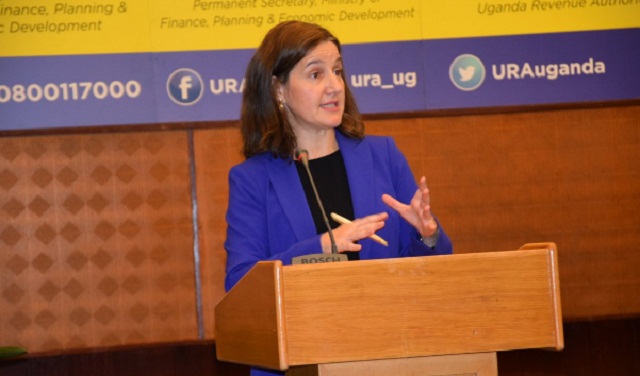
Danger of diverting funds
If this happens, it will not be the first time. Ahead of the 2016 elections, politicians decried an April supplementary budget worth Shs.800 billion.
“That supplementary budget is poorly disguised,” said Joseph Bossa, the vice president of the opposition Uganda Peoples Congress (UPC) said then, “It is a flush fund to finance Museveni and the NRM elections.”
The biggest concern was that of the Shs.800 billion, only Shs.11.9 billion was for development expenditure and a whopping Shs.728.1 billion was for recurrent expenditure.
Observers pointed out that most of the money was allocated to departments and institutions whose cash President Museveni directly controls.
When the budget came, similar concerns were raised; especially because the cash for spending was increased from an estimated Shs.4 trillion to Shs.18 trillion. The 2015/16 budget would total Shs.24 trillion but Shs.6 trillion was for debt payment.
Months after elections, signs of the haemorrhage began to emerge as government departments and ministries failed to pay salaries and suppliers.
When The Independent asked him about it at the time, Amos Lugoloobi, the outgoing chairman of parliament’s budget committee who also sits on the committee on Finance, Planning and Economic Development, said the government had suppressed the budget votes by 30%.
This meant that the government only dispersed to MDAs 70% of what it had budgeted for them.
Lugoloobi said the budget for elections was quite heavy, and certain things had not been budgeted for and because government wanted to avoid inflation, it made sure it spent only what it budgeted for.
For instance, just before elections, a major donor, the Democratic Governance Facility (DGF) declined to release some Shs4.5 billion it had committed to the purchasing of equipment to transmit elections after the Electoral Commission (EC) sparked a row by cancelling an agreed contract and awarding the deal ‘secretly’. Government said it would fund the project.
When The Independent put the issue to Kenneth Mugambe, the Director Budget, he denied insisting the suppression, or budget squeeze, was at between 5% and 10%.
Experts like Muhumuza and Ggoobi fear this could be repeated for 2021 and hurt the economy that is still struggling.
Misplaced optimism?
The fear of election spending-related economic disruption is deeper today because the next election is happening at a time when there is new optimism around the economy.
In a recent interview with The Independent, IMF Country Representative, Clara Mira reflected this optimism. She said IMF expects economic growth to go from 6% towards 7% in the next five years or less.
She said the growth projections are based on assumptions of stable global environment, private sector confidence being maintained so the private sector credit continues to recover, and the growth dividend from recent huge infrastructure development being realised. The other main assumption is that oil sector investments will be made as planned and oil is going to start flowing at some point in 2023 or so.
But Muhumuza believes that all is not as well with the economy as the IMF and World Bank have suggested recently.
“Their assumptions are faulty,” he told The Independent.
He cited impediments to the economy, including lack of clarity on the road to oil production because of government disagreements with oil companies, the persistent failure of the economy to create jobs, the slow growth of the agriculture sector against a high population growth rate, and the economy’s dependence on unpredictable rainfall.
This year, the rains have not been as good,” he told The Independent, “There has not been a turning point in the growth of the economy.”
Patrick Ocailap, the Deputy Secretary to the Treasury, is equally cautious. While discussing IMF’s Regional Economic Outlook in Kampala on May 22 he said the economy could suffer because of external factors.
He said trade tensions between the United States and China and several advanced economies are likely to impact on Uganda particularly through a reduction in Foreign Direct Investment and Remittances, as well as a slowdown in export demand. He skirted the domestic election-related government spending as a possible danger to the economy but that is understandable. To ensure economic stability even with a presidential election, you need confidence not uncertainty.
****
 The Independent Uganda: You get the Truth we Pay the Price
The Independent Uganda: You get the Truth we Pay the Price






It’s fine
if the elephants are on their fight,it is the grass to suffer.
Thanx for sharing this nice blog.